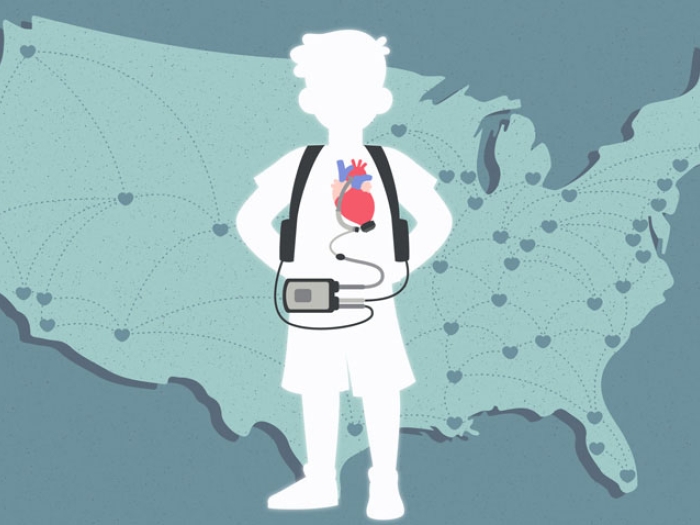Regular evaluations to identify developmental issues early are critical for children born with complex heart disease who may have worse motor, communication and adaptive skills as they get older.
5:00 AM
Author |

Babies with congenital heart disease who undergo heart surgery in their first year of life are at high risk for neurodevelopmental delays that affect behavioral and cognitive abilities.
And by age six, children born with one of the most complex congenital heart conditions have poorer behavioral, functional and quality of life outcomes than peers without heart disease, a recent study suggests.
Researchers followed 250 children born with hypoplastic left heart syndrome, a defect in which the heart's left ventricle is underdeveloped and can't effectively pump blood to the body. All babies with the condition require surgery shortly after birth.
By early elementary school, patients in the study scored worse in measures of motor, communication, daily living and adaptive skills, according to the multicenter study published in Pediatrics.
MORE FROM THE LAB: Subscribe to our weekly newsletter
"These results emphasize that when we take care of children with complex heart disease, we need to be thinking about taking care of more than just their heart," says lead author Caren Goldberg, M.D., pediatric cardiologist at Michigan Medicine C.S. Mott Children's Hospital.
"Our approach to care must be holistic, and we should consider the influence of children's heart disease on other aspects of their lives."
These results emphasize that when we take care of children with complex heart disease, we need to be thinking about taking care of more than just their heart.Caren Goldberg, M.D.
Goldberg and colleagues tracked neurodevelopmental outcomes in patients at age one, three and six. She said the findings underscore the importance of regular evaluations of young heart patients in order to identify and address developmental health issues as early as possible.
SEE ALSO: Helping Babies Thrive After Heart Surgery
"Our findings reinforce that children with complex congenital heart disease are at increased risk for neurodevelopmental and psychological problems later in life," Goldberg says.
"We can't predict which individuals are going to have the biggest challenges down the road so every patient should be evaluated and screened throughout their childhood."
Among congenital heart defects, hypoplastic left heart syndrome appears to carry the greatest risk of neurodevelopmental impairment but children with other complex congenital heart disease are also at high risk. Factors that may increase the risk include lower socioeconomic status, ECMO support, experiencing clinical complications or unexpected procedures.
Long periods of hospitalization during the newborn and infancy phase due to surgeries also mean fewer opportunities for "tummy time" and other valuable motor development activities, experts say. Hospital stays related to surgeries can range from weeks to months long.
The new research is a follow up study from a Mott-led single ventricle trial that followed children with the complex condition from 15 centers between 2005 to 2008. The trial, led by Mott pediatric cardiac surgeon Richard Ohye, M.D., is the first multicenter randomized trial ever conducted in the congenital heart surgery population.
Improving Outcomes
Mott teams have developed programs to enhance developmental care for babies requiring hospitalization during newborn and infant stages in order to address neurodevelopmental gaps. A read aloud program "Book Babies," music therapy and multidisciplinary developmental care rounds are among efforts to improve developmental outcomes for children with congenital heart disease.
A specialized follow-up clinic through the Mott Congenital Heart Center also tracks developmental, learning, and behavioral concerns in congenital heart patients who have had heart surgery before age one.
"Being able to identify developmental problems as early as possible allows us to provide intervention and support for children during a critical time," Goldberg says.
"Congenital heart patients' treatment doesn't end with surgery."
Like Podcasts? Add the Michigan Medicine News Break to your Alexa-enabled device or subscribe for updates on iTunes, Google Play and Stitcher.

Explore a variety of health care news & stories by visiting the Health Lab home page for more articles.

Department of Communication at Michigan Medicine
Want top health & research news weekly? Sign up for Health Lab’s newsletters today!





